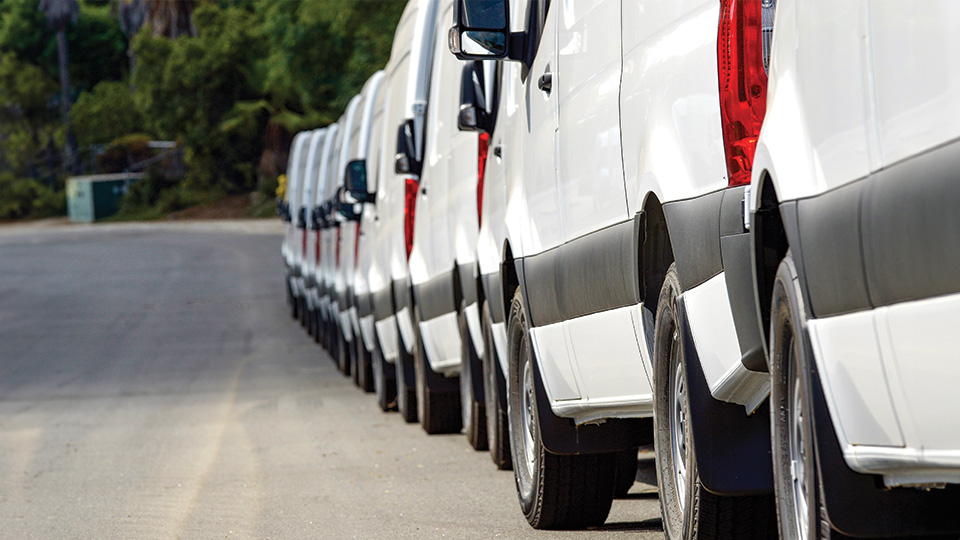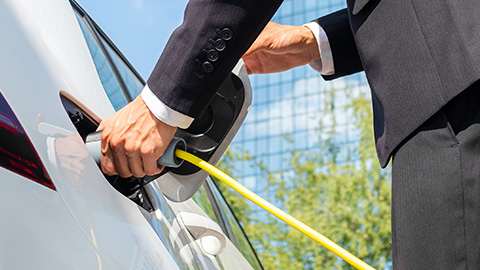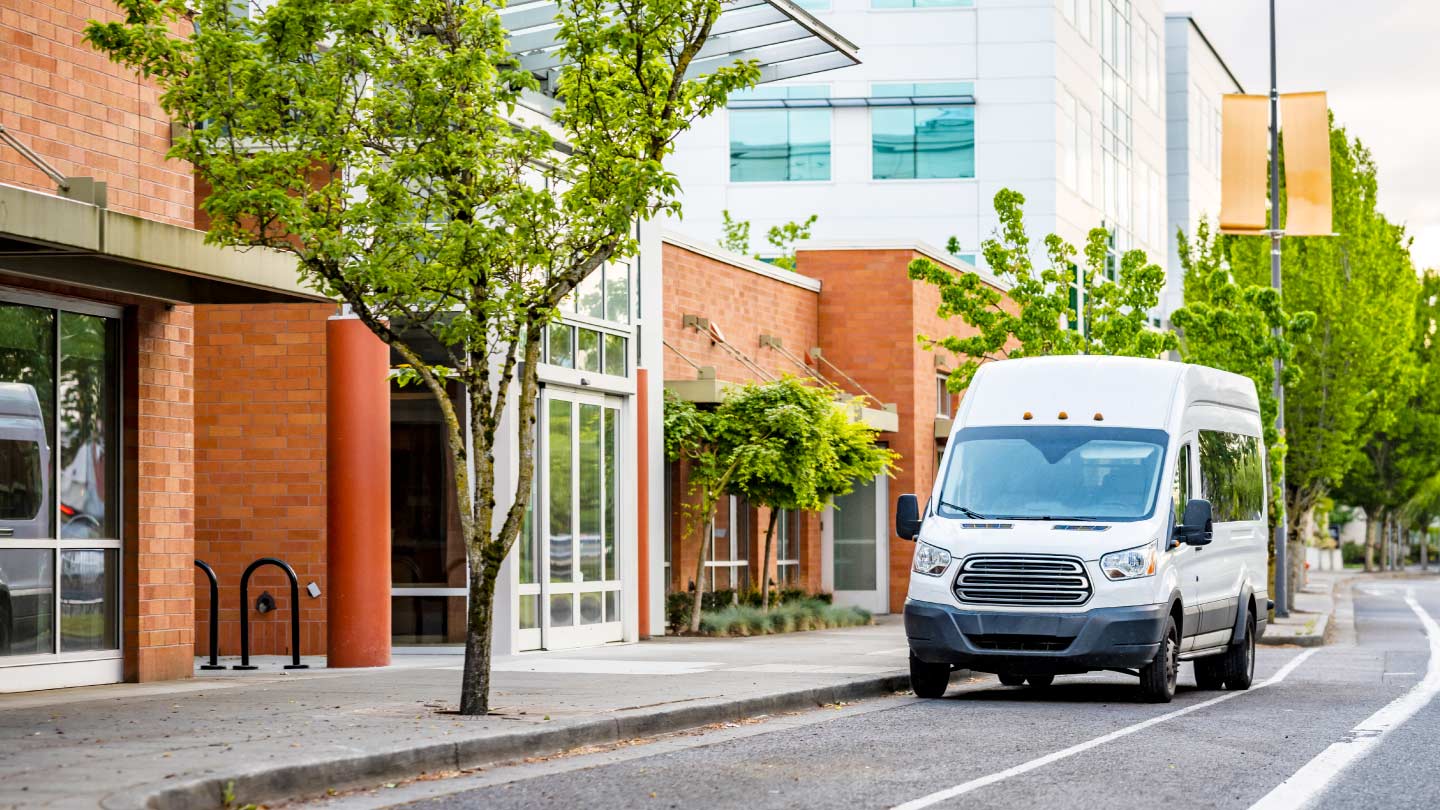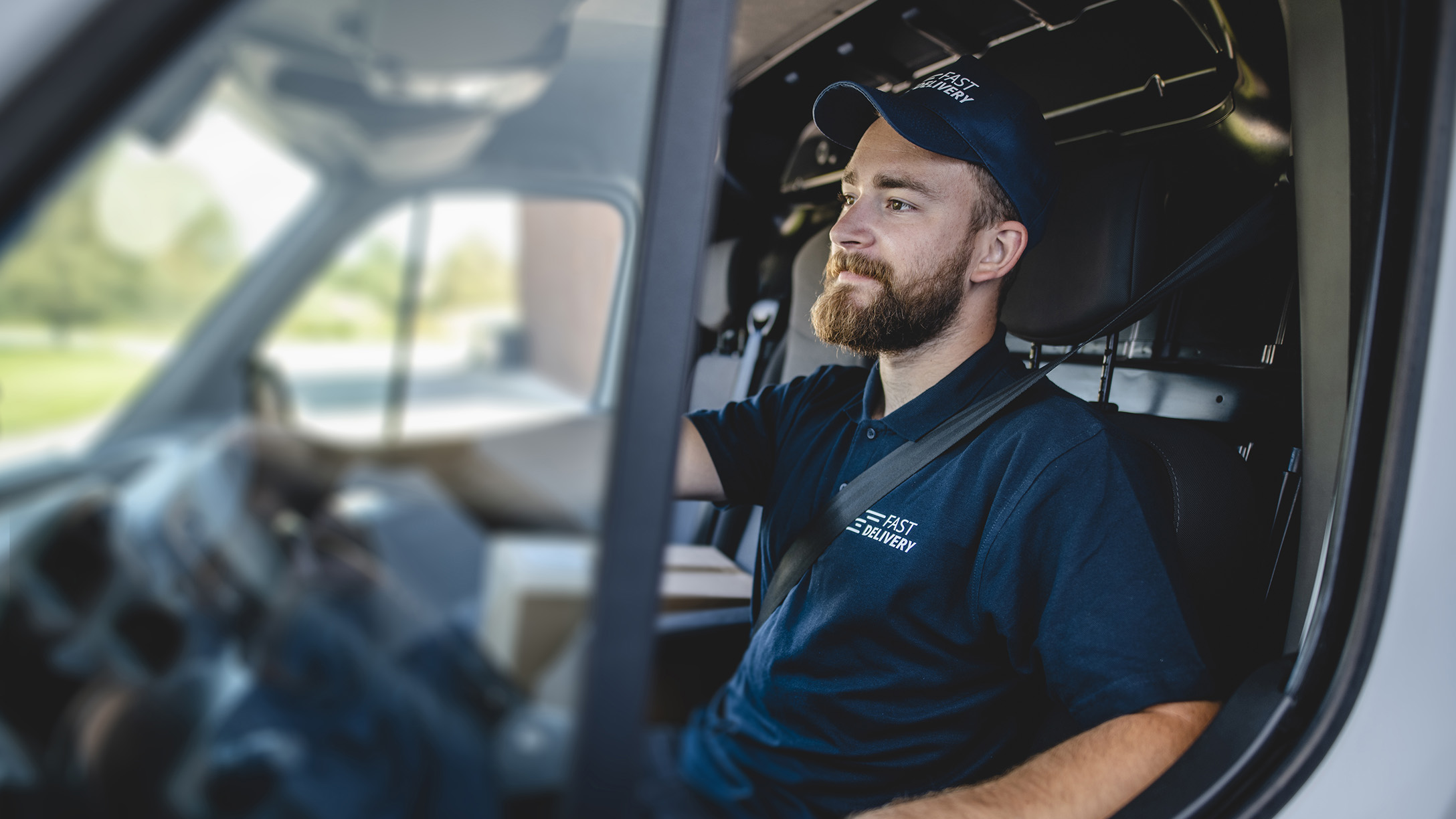
What is hotshot trucking? A comprehensive guide
Last updated on May 8, 2024 in Fleet Management by Geotab Team | 6 minute read
Table of contents
Explore the world of hotshot trucking in our comprehensive guide. From its vast benefits to starting your own business, discover everything about this transport niche.
Hotshot trucking, a term that is gaining popularity in the transportation industry, offers a range of advantages to both drivers and clients. As a specialized form of freight transportation, hotshot trucking provides flexibility, speed, and cost savings. In this comprehensive guide, we will explore the ins and outs of hotshot trucking, highlighting the main benefits, challenges.
What is hotshot trucking?
Hotshot trucking is the transportation of small and time-sensitive loads using a pickup truck or a Class 3 to Class 5 truck. Unlike traditional trucking, where larger trucks are commonly used for shipping, hotshot trucking offers a more efficient way to transport smaller loads, often referred to as less-than-truckload (LTL) loads. This specialized form of trucking is ideal for urgent deliveries, expedited shipments, or jobs that require quick response times.
Hotshot trucking has become increasingly popular in recent years due to its ability to provide fast and reliable transportation services. With the rise of e-commerce and the need for quick deliveries, hotshot trucking has emerged as a vital player in the logistics industry. By utilizing smaller vehicles, hotshot trucking companies can navigate through congested urban areas and reach remote locations that are inaccessible to their larger counterparts.
One of the key advantages of hotshot trucking is its flexibility. Traditional trucking often involves long wait times and strict schedules, but hotshot trucking allows for more agile operations. Hotshot drivers can quickly adapt to changing circumstances and accommodate last-minute requests. This level of responsiveness makes hotshot trucking an attractive option for businesses that require immediate transportation solutions.
The history of hotshot trucking
The concept of hotshot trucking dates back several decades when independent truckers began using their pickup trucks to haul small loads. This approach became popular because it allowed for rapid delivery of goods, particularly in remote areas inaccessible to larger trucks.. Over the years, hotshot trucking evolved into a professional and specialized industry, catering to various clients seeking rapid and reliable transportation services. As the demand for hotshot trucking grew, so did the need for specialized equipment and training. Hotshot drivers started investing in heavier-duty trucks, allowing them to transport larger and heavier loads. Additionally, advancements in technology, such as GPS tracking and mobile communication, have greatly improved the efficiency and safety of hotshot trucking operations.
The pros and cons of hotshot trucking
Hotshot trucking offers numerous advantages that make it an attractive option for both drivers and businesses. Its hallmark is the unique blend of flexibility, speed, and efficiency, coupled with the added advantage of lower operating costs.
Pro: Flexibility and convenience
One of the key benefits of hotshot trucking is its flexibility. Hotshot drivers can easily adapt their schedules based on the demands of their clients. Whether it's a last-minute request or a time-sensitive load, hotshot trucking allows drivers to cater to the needs of businesses requiring urgent transportation services. This level of flexibility not only benefits the drivers but also means that businesses can rely on prompt and efficient deliveries, enhancing their overall operations.
Moreover, hotshot trucking allows drivers to maximize their income potential by taking on a wide range of clients. With the ability to transport various types of goods, hotshot drivers can tap into different industries and establish long-term relationships with businesses. This versatility not only provides financial stability but also opens up opportunities for growth and expansion.
Pro: Speed and efficiency
When it comes to speed, hotshot trucking surpasses traditional trucking methods. By utilizing smaller vehicles, hotshot drivers can navigate through congested areas, take the most direct routes, and make quicker deliveries. This swift and efficient nature of hotshot trucking is particularly advantageous for businesses that need their goods delivered promptly.
Industries such as oil and gas, construction, or agriculture often rely on time-sensitive materials or equipment. With Hotshot trucking these sectors have a reliable method to keep their operations uninterrupted. Whether it's delivering critical components to a drilling site or transporting perishable agricultural products, hotshot drivers can meet the tight deadlines and keep businesses running smoothly.
Pro: Lower operating costs
Hotshot trucking offers significant cost savings compared to larger trucks. With a smaller vehicle, drivers have lower fuel expenses and reduced maintenance costs. Additionally, since hotshot drivers typically operate as independent contractors, they eliminate the need for a large fleet or a team of drivers.
By adopting a streamlined approach, hotshot truckers can reduce overhead costs significantly. This translates into higher profitability, as the savings can be reinvested in the business or used to offer competitive pricing to clients. Furthermore, the independence that comes with hotshot trucking allows drivers to have more control over their operations, enabling them to make strategic decisions that optimize their earnings.
Hotshot trucking offers a host of advantages that make it an appealing option for drivers and businesses alike. Its flexibility, speed, efficiency, and lower operating costs make it a reliable and profitable transportation solution. Whether it's meeting urgent delivery needs or providing cost-effective services, hotshot trucking continues to play a vital role in various industries, contributing to their growth and success.
Con: Managing long hours and stress
Hotshot trucking can be physically and mentally demanding, requiring drivers to work long hours and navigate through varying road and weather conditions. Proper time management, regular breaks, and adopting stress-management techniques are paramount to maintaining the well-being of hotshot drivers. Establishing a healthy work-life balance is essential for long-term success in this industry.
Con: Dealing with unpredictability
The nature of hotshot trucking entails dealing with uncertain and unpredictable situations. From unexpected vehicle breakdowns to clients requesting urgent last-minute deliveries, hotshot drivers must be prepared for unforeseen challenges. Adapting to changes quickly, keeping lines of communication open, and having contingency plans in place are essential for overcoming these obstacles and maintaining a high level of service.
How to get started with hotshot trucking
Starting a hotshot trucking business can be an exciting and lucrative venture. However, there are several essential requirements that must be met in order to ensure a successful operation.
Hotshot trucking equipment and licenses
One of the first things that aspiring hotshot truckers need to consider is obtaining the required licenses and equipment. Legal operation of a hotshot trucking enterprise requires a commercial driver's license (CDL) along with adherence to all relevant standards maintained by the Federal Motor Carrier Safety Administration (FMCSA).
Aside securing the proper licensing, operators will need to invest in a dependable truck of suitable size. The size of the truck will depend on the types of loads they plan to haul. It's important to choose a truck that can handle the weight and dimensions of the cargo, while also ensuring it is equipped with the necessary safety features. Some hotshot truckers prefer to use a flatbed or dually truck, but the most popular vehicle types are class 3, 4, or 5 trucks.
Class 3 Trucks:
Weight Range: 10,001 to 14,000 pounds
Popular Models: Ford F-350, Chevrolet Silverado 3500, Ram 3500.
Description: Heavy-duty pickup trucks that can be used in both personal and commercial applications. They are favored in hotshot trucking due to their ability to tow trailers while still being suitable as a personal vehicle.
Class 4 Trucks:
Weight Range: 14,001 to 16,000 pounds
Popular Models: Ford F-450, Chevrolet Silverado 4500.
Description: Typically utilized for larger commercial tasks, these trucks support heavier hotshot loads with their robust engines and advanced suspension systems.
Class 5 Trucks:
Weight Range: 16,001 to 19,500 pounds
Popular Models: Ford F-550, Ram 5500, Chevrolet Silverado 5500.
Description: Sitting at the upper bound of what could still be considered a pickup truck, these trucks are equipped with powerful engines and are often tailored for specific commercial roles.
Each truck and trailer category offers unique advantages and considerations, making it vital for business owners to thoroughly assess their specific requirements prior to making an investment decision.
Finding customers and building relationships
Once the necessary licenses and equipment are in place, the next step is to find customers and build strong relationships within the industry. Acquiring customers is crucial for the success of any hotshot trucking venture, and there are several strategies that can be employed to achieve this.
Networking is a powerful tool in the hotshot trucking industry. By attending industry events, joining professional associations, and connecting with other truckers, drivers can establish valuable contacts and gain insights into potential job opportunities. Building a strong network can also lead to referrals, which is a great source of new customers . Proactively reaching out to local businesses in need of hotspot services, whether . cold-calling, introductory emails, or in-person visits, can solidify relationships and expand a driver’s customer base as well.
In today's digital age, utilizing online platforms is essential for any business looking to thrive. Creating a professional website and optimizing it for search engines can help hotshot truckers attract potential customers who are actively searching for transportation services. Additionally, establishing a strong presence on social media platforms can help drivers connect with a wider audience and showcase their expertise and reliability.
However, finding customers is just the beginning. Building strong relationships is equally important for the long-term success of a hotshot trucking business. Delivering exceptional service, being reliable and punctual, and going above and beyond to meet customer expectations are all crucial factors in building trust and retaining customers. A satisfied customer more likely to recommend the services to others, which can lead to valuable word-of-mouth referrals.
Starting a hotshot trucking business requires careful planning and attention to detail. From obtaining the necessary licenses and equipment to finding clients and building relationships, every step is important for the success of the venture. By investing time and effort into these areas, aspiring hotshot truckers can set themselves up for a thriving and profitable business.
The road ahead – thriving in hotshot trucking
Overall, hotshot trucking offers numerous benefits and opportunities for those looking to enter the transportation industry. With its flexibility, speed, and cost savings, it has become a popular choice for many businesses seeking efficient and reliable transportation solutions. However, it's important to acknowledge and address the challenges that come with this line of work. By understanding the industry, acquiring the necessary licenses and equipment, and maintaining a strong work ethic, hotshot truck drivers can build successful and thriving businesses in this competitive field.
Enjoyed this guide? Check out our other comprehensive articles on topics that matter most to the transportation industry.
If you liked this post, let us know!
Disclaimer
Geotab's blog posts are intended to provide information and encourage discussion on topics of interest to the telematics community at large. Geotab is not providing technical, professional or legal advice through these blog posts. While every effort has been made to ensure the information in this blog post is timely and accurate, errors and omissions may occur, and the information presented here may become out-of-date with the passage of time.
Get industry tips and insights
Sign up for monthly news and tips from our award-winning fleet management blog. You can unsubscribe at any time.
Republish this article for free
Other posts you might like

Four key trends shaping the future of the transportation industry
May 9, 2024
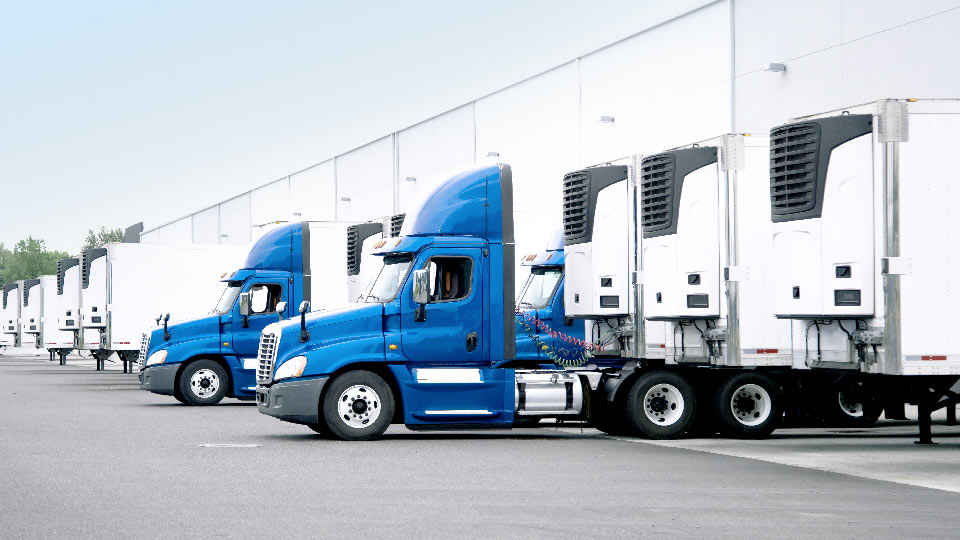
What is cold chain monitoring?
April 24, 2024

A fleet’s guide to multi-stop route planners
April 24, 2024
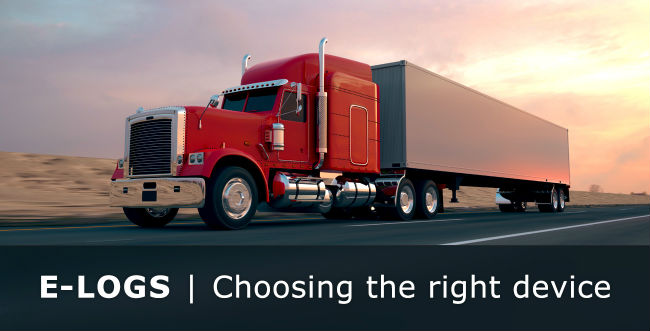
Electronic logs: unlocking the benefits for trucking
April 15, 2024
